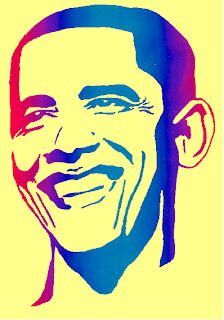

1. Discuss THREE specific ways in which Postman explains how the medium of television transforms the epistemological nature of each of the following:
A. Public discourse about religion
B. Public discourse about politics
C. Public about education
A) Postman believes that television shaped public discourse in regards to religion in several ways. He starts off with a few specific examples. The first example from the novel was Reverend George Sakowicz, a Roman Catholic Priest from Chicago who “mixes his religious teachings with rock’n’roll music.” The Reverend then states, “ You don’t have to be boring in order to be holy” (Postman, 93). This example proves that viewers must be entertained at all times. The second example Postman described involved the Amish. It is against their religion and culture to watch television. However, when Harrison Ford stepped into Amish country he caused a big stir amongst the children. Lastly Postman talks about Religion that is broadcasted and viewed on television. He points out that viewers at home can multitask while watching, pause the “show,” and change the channel. The experience at home is almost unholy. If one were physically in church he or she would have to sit undisturbed throughout the entire mass. The variables of each situation are quite different and nowhere near as effective.
B) Postman’s views on politics and television are as follows, “Politics is just like show business” (125). He then goes on to say, “ If politics are like show business, then the idea is not to pursue excellence, clarity or honesty but to appear as if you are, which is another matter altogether” (126). Politicians do this through commercials. A wide range of viewers view commercials and it is the job of the politicians to sell themselves to that audience. They have to be entertaining enough to catch their attention amongst all the other media clutter. This in turn makes politicians into celebrities.
C) Postman’s views on education and television are as follows. He gives the example of Sesame Street as an educational program on television. This program helps children count and read among many other things. The usage of cute puppets, song and dance is what makes this show so appealing to children they are mesmerized by it, and parents are ok with it because it is educational. However this program contradicts the traditional school system. School involves social interaction whereas the program is personal. In a classroom students can ask their teacher questions but obviously can’t ask the television questions. Students have to attend school, but watching TV is an option. When a child grows up on Sesame Street, school in comparison is boring. Educational children’s programs warp what education really is.
2. What specific solutions does Postman offer to improve public communication in our "Peek A Boo" world, and our challenges to communicate in a thoughtful and rational manner in "An Age of Show Business"? In other words, how might we prevent a world in which we are "amusing ourselves to death"?
Postman’s solution to improve public communication is “ to rely on the only mass medium of communication that, in theory, is capable of addressing the problem: our schools” (162). The simple solution is to make sure everyone is well informed if they are well informed about media then they “will know what they are laughing about and why they stopped thinking”(163).
3. HARD Question: Does Postman's thesis about television still apply to our public discourse in today's Age of the Internet? Please explain your reasoning in 4-5 sentences.
I feel that the same discourse is prevalent in today’s society, but not with the television. The Internet has definitely taken the place of TV. All of the mediums combined and then some can be accessed through the web, and the web can be accessed from cell phones, video games, computers and many other devices. Consumers have everything they need all in one place. I honestly never watch TV anymore. I am always online. If I do watch a program, it is online. I read the news online, I communicate online, and most of my professors use things online to teach us in the classroom. These are the reasons why I feel the Internet has surpassed television in regards to public discourse.



You raise many profound questions about our relationship with media here, Corey, in this excellent summary of Postman. Thanks for linking to his official page, too - I had actually never seen it before. What happens to your analysis when you throw Carr and Cascio into the mix?
ReplyDeleteW